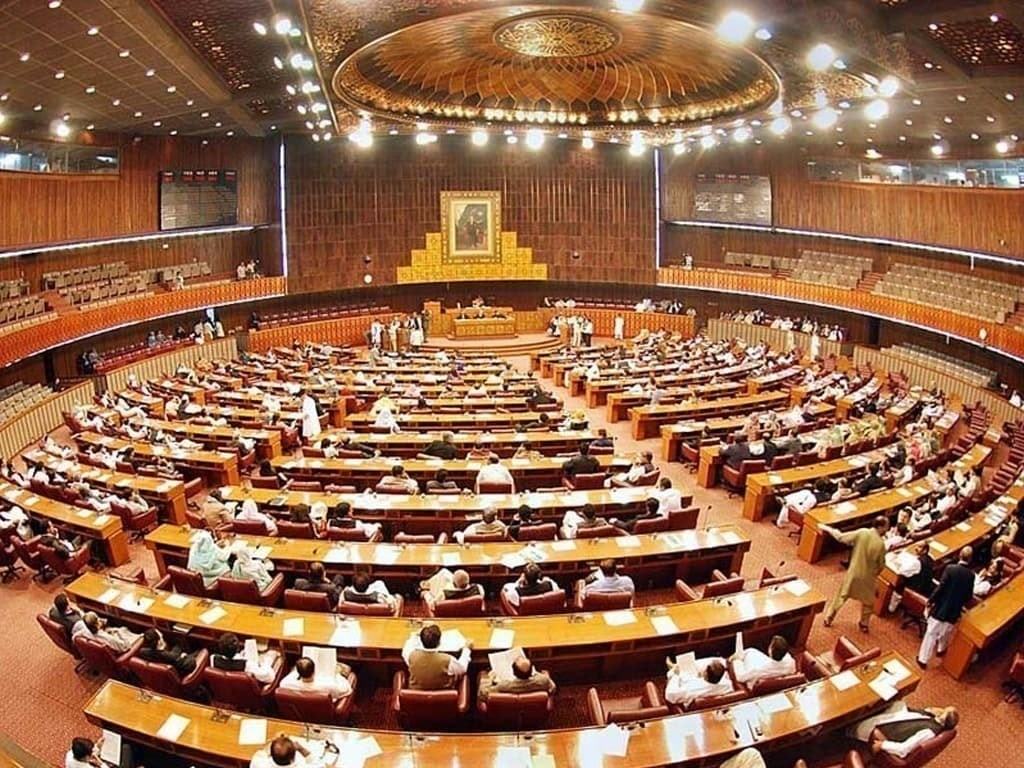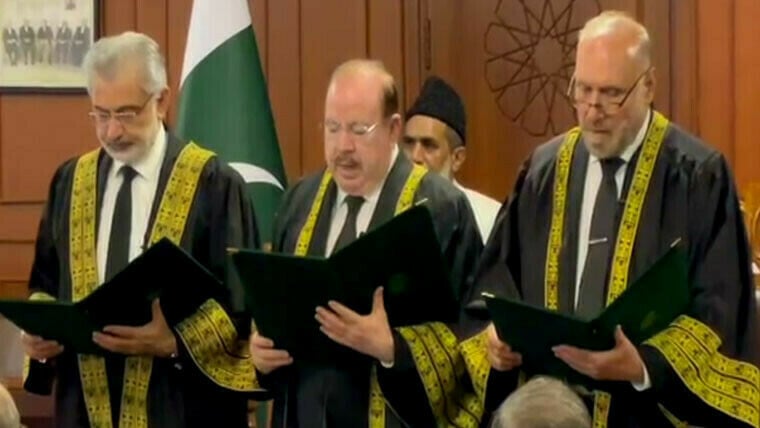PTBP Web Desk
The National Assembly (NA) of Pakistan resumed its session on Wednesday to debate the 27th Constitutional Amendment Bill, which is poised for approval by the lower house. Chaired by NA Speaker Ayaz Sadiq, the session marked a significant step in the country’s legislative process, as the bill seeks major constitutional changes, including judicial reforms and lifetime immunity for key officeholders.
After extensive discussions on the proposed legislation, Law Minister Azam Nazeer Tarar is expected to formally move the bill for the house’s approval. The amendment now requires the support of a two-thirds majority in the 336-member National Assembly, followed by the President’s assent, to be enacted into law.
During the debate, Pakistan Peoples Party (PPP) lawmaker Nafisa Shah highlighted the need to examine the bill in the context of prior constitutional amendments, including the 26th and earlier versions of the 27th Amendment. She emphasized that several provisions were omitted, particularly those concerning the federal structure and resource allocation, which remain critical issues for the party.
Speaker Ayaz Sadiq reiterated his willingness to facilitate dialogue between the ruling coalition and the opposition. He urged all parties to accept his offer, noting that meaningful progress can only be achieved through collaborative discussions. He also referenced multiple invitations from Prime Minister Shehbaz Sharif to the opposition for dialogue, underlining the importance of parliamentary consensus.
The ruling coalition currently holds a majority in the National Assembly, with the following seat distribution:
- Pakistan Muslim League-Nawaz (PML-N): 125 seats
- PPP: 74 seats
- Muttahida Qaumi Movement-Pakistan (MQM-P): 22 seats
- Pakistan Muslim League-Quaid (PML-Q): 5 seats
- Istehkam-i-Pakistan Party: 4 seats
- Pakistan Muslim League-Zia, Balochistan Awami Party, National Peoples Party: 1 seat each
The opposition collectively holds 103 seats, making a two-thirds majority achievable for the ruling coalition.
On Monday, the Senate passed the bill with a two-thirds majority, as 64 senators voted in favor. The session witnessed a walkout by opposition members, signaling strong resistance to the proposed amendments. Following Senate approval, the bill was tabled in the National Assembly on Tuesday, triggering sharp criticism from opposition lawmakers.
Opposition leaders accused the ruling coalition of consolidating power for the elite while shielding corrupt figures from accountability. The Pakistan Tehreek-e-Insaf (PTI) vowed to reject the amendment entirely and pledged to mobilize protests through all available platforms, including street demonstrations.
The bill includes 59 clauses, all of which were approved sequentially in the upper house. Key proposals under the amendment include:
- Creation of a Federal Constitutional Court (FCC)
- Judicial reforms to streamline and enhance legal processes
- Lifetime immunity for the President and Field Marshal, shielding them from legal proceedings
Supporters argue these changes are necessary for strengthening governance and modernizing judicial oversight, while opponents view them as a threat to democratic accountability.
PTI Chairman Barrister Gohar Ali Khan condemned the amendment, calling it flawed and undemocratic. He warned that passage of the bill could reduce Pakistan’s democracy to a façade, undermining constitutional integrity.
“If this amendment passes, the constitution will be rendered meaningless,” Khan asserted. He emphasized that the PTI would not accept what he termed a “betrayal of the public trust”, framing the amendment as an attempt to protect political elites at the expense of the citizenry.
As the National Assembly moves toward approving the 27th Constitutional Amendment, key debates continue regarding the balance of power, judicial independence, and federal rights. The bill’s approval will represent a significant milestone in Pakistan’s constitutional history, with implications for governance, accountability, and the broader democratic framework.
Observers note that while the ruling coalition appears positioned to secure passage, ongoing opposition protests and public scrutiny may shape the implementation and perception of these amendments.




